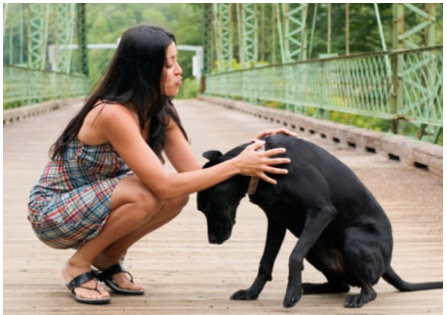CommentsAMINALS MATTER--If a wrong-headed Assembly proposal passes the state Senate and is signed into law, Californians will surrender the freedom to select the pet of their choice.
Hard to believe, but you read that correctly. Under the proposal, the state would step in and prevent you from choosing a purebred puppy if you wanted to buy a pet through a retail pet store that is subject to federal animal welfare regulations and California’s consumer protection laws.
This might not have been a big deal years ago, because you could find a local breeder with relative ease. But tough local limit laws, restrictions on owning dogs that have not been spayed or neutered and even anti-breeder extremism have discouraged small, local hobby breeders. For many people, especially those who don’t have access to small, private breeders, professionally-bred pets are their only option to get a pet of their choice.
At issue is Assembly Bill 485, which would eliminate the sale of dogs, cats and rabbits sourced from professional breeders in all pet shops throughout the state. Instead, pet shops would be forced to sell only those animals obtained through shelters or so-called rescues.
The federal animal welfare act currently regulates the breeding, care, conditions and other standards of welfare for professionally-bred pets sold at pet stores. By contrast, pets that are labeled as “rescue” or “shelter” are not subject to the same requirements.
AB485 effectively takes away the most regulated, health-tested and temperament-checked sources of pets on the market and promotes pets from sources that lack this regulation and oversight. Less oversight on sourcing also potentially increases public health risks for the entire community.
The proposed law subsidizes the import and sale of pets from random and unregulated sources, while taxing sellers and buyers of pets that come from regulated, humane sources.
The measure is akin to forcing someone to buy a pre-owned car with only vague knowledge of the make and even less knowledge about its history, whether it’s reliable and suits their lifestyle.
Backers of the bill believe their activism would benefit the ever-rising population of dogs in shelters and rescues. But in actuality, they would exacerbate a growing problem.
Selling only shelter or rescue dogs creates a perverse incentive to import greater numbers of street dogs and dogs of unknown origins for U.S. retail rescues. In fact, the U.S. already has become a dumping ground for foreign “puppy mill” and rescue dogs, importing close to 1 million rescue dogs annually from Turkey, several countries in the Middle East and as far away as China and Korea, according to the National Animal Interest Alliance.
It’s a crap shoot whether these foreign street dogs Californians may be adopting are carrying serious diseases. That’s because while importation laws require all dogs to be examined by a licensed veterinarian, foreign paperwork is commonly invalid or forged, according to the U.S. Centers for Disease Control and Prevention.
The issue is particularly concerning because dogs from other countries are not subject to the health and welfare laws of professionally-bred U.S. dogs. A number of rescue imports have been linked to new outbreaks of serious and infectious canine diseases including rabies, bordatella and most recently, canine flu in Los Angeles County.
Even setting aside the potential health issues and the problem of making the U.S. a magnet for the world’s strays and sick animals, a rescue pet is not appropriate for everyone. Many have special needs that may not fit into the owner’s lifestyle or care abilities. People select purpose-bred dogs because they want a specific type of pet. They may be seeking the predictability of a purebred puppy from known and health/temperament-tested parents or the consumer protections provided by state law over dog breeders.
If animal activists truly want to help dogs in need, they should, first, encourage responsible local and breed-club charitable rescues, while pushing to regulate importers, distributors and retailers of “rescue” pets at the same high standard that purpose-bred pets are regulated.
Second, activists should focus on boosting oversight of rescues and shelters. Despite the increasing popularity of pets marketed as “rescues,” there is almost no regulation of animals that are labeled as rescues.
The decision to acquire an appropriate pet is a deeply personal choice. It should be made by the individual — not restricted by government fiat promoted by extremists who seek the end of responsible dog breeding.
Sheila Goffe is vice president, government relations for the American Kennel Club. This article originally appeared in the Orange County Register. Prepped for CityWatch by Linda Abrams.
-cw
















